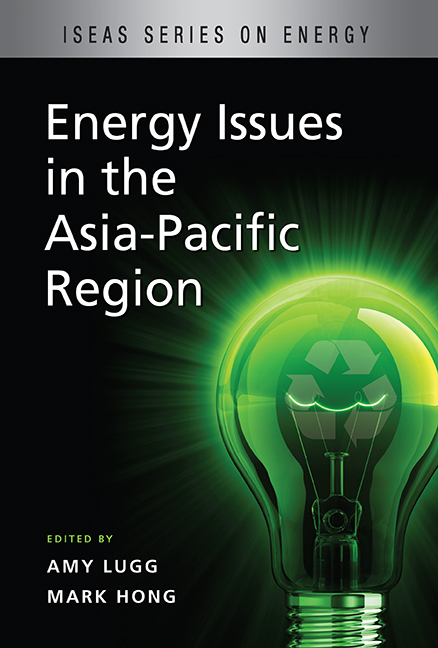6 - New Partnerships in Energy Security in Asia: India, ASEAN, and Singapore
from INDIA
Published online by Cambridge University Press: 21 October 2015
Summary
ABSTRACT
Energy supplies are the Achilles heel of the rising Asian economies in ASEAN, India, and China. Without assured supplies at affordable prices, the Asian economic boom would soon fizzle. Energy supplies are clearly and directly linked to geopolitics. Energy issues figure prominently in key relations among the Great Powers, and between India and Pakistan; they are important in Middle East-South Asia relations, and in Iran-India relations, as well as in maritime security issues involving sea lines of communications, such as the Straits of Malacca and the Straits of Hormuz. Finally pipeline issues — such as those planned in Turkmenistan-Afghanistan-Pakistan- India, Iran-Pakistan-India, the trans-peninsular across northern Malaya, from Central Asia outwards, and from Siberia to China and Japan — have loomed large in interstate relations. Much of the competition on energy access is based on a zero-sum game approach. An interesting question is whether we can turn such an approach into a win-win approach; but how would we achieve this?
INTRODUCTION
First, we can define energy security in terms of the following parameters:
• Physical: the availability and accessibility of energy supply sources
• Economic: the affordability of resource acquisition — mainly oil and gas — and energy infrastructure development
• Environmental: Sustainable development and use of energy resources in ways that do not harm the environment or cause adverse climate change, and that satisfies the needs of the present and future generations
• Geopolitical: since energy is highly politicized, as shown by the dispute between Russia and Ukraine in January 2009 over natural gas in transit to the European Union.
When ASEAN countries survey the region in search of science and technology to assist their economic development, they may assess that Japan, China, Australia, and India are possible sources. Each of them have the needed expertise, as shown in their space, nuclear, industrial, and defence sectors. This applies equally to their energy sectors. Both India and China are similar to the ASEAN countries in terms of having large rural sectors, with many people living in villages, and in being developing countries.
- Type
- Chapter
- Information
- Energy Issues in the Asia-Pacific Region , pp. 122 - 138Publisher: ISEAS–Yusof Ishak InstitutePrint publication year: 2010



